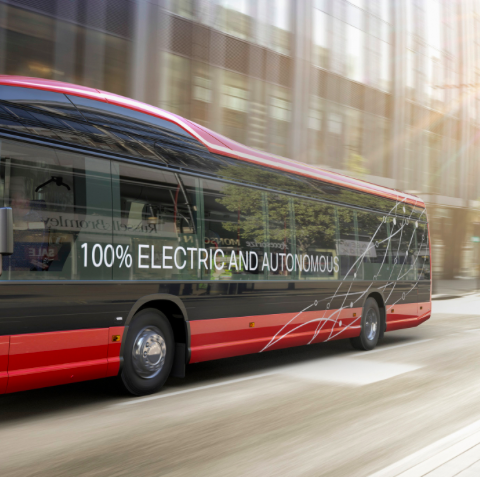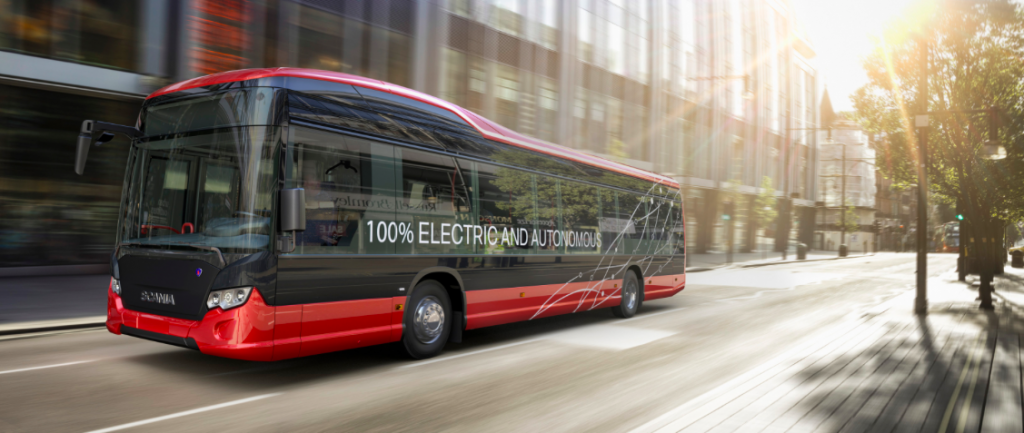Scania partners with Nobina for autonomous bus trial in Stockholm
The electric bus by Scania, which is going towards serial production after a pilot started in March 2018, will be the protagonist of a trial of autonomous buses on regular routes that will be carried on by Nobina in the Stockholm area with two vehicles. The trial period is planned to begin in 2020. In this […]

The electric bus by Scania, which is going towards serial production after a pilot started in March 2018, will be the protagonist of a trial of autonomous buses on regular routes that will be carried on by Nobina in the Stockholm area with two vehicles. The trial period is planned to begin in 2020.
In this same year, another project on autonomous buses is expected to begin in Scotland, as announced by partners Alexander Dennis and Stagecoach (but it’ll involve diesel buses).

Autonomous buses with safety driver on board
Nobina is the largest public transport operator in the Nordic countries. The trials will be conducted in two stages, Scania points out in a press release, initially without passengers before welcoming commuters onboard. Safety being a top priority throughout the trials, the buses will have a safety-driver to monitor operations and assist passengers.
The two Scania Citywide LF electric buses will connect the rapidly expanding new residential area Barkarby (where several innovative public transport projects are already under way, as BRT infrastructure and new digital solutions), approximately 20 kilometres from downtown Stockholm, with a nearby metro station. Charging operations will be executed in depot overnight.
A new dedicated route for the autonomous Scania buses
The buses will be in service along a new dedicated 5-kilometre route with four stops. Initially, approximately one kilometre is planned to be driven autonomously. During the second phase of the trials, it is expected that around 300 passengers will make daily use of this service.
Traffic and control systems for the autonomous buses will be jointly managed by Scania and Nobina, still the manufacturer points out. Throughout the trials, data will be collected on, for example, average speeds, uptime, on-time performance, deviation response and passenger satisfaction.
Autonomous bus, the technology is mature. According to Scania
“The technology is now sufficiently mature to initiate trials in actual bus operations on public roads, making the project one of the first of its kind in Europe with buses this size,” says Karin Rådström, Head of Buses and Coaches, Scania. “The project will provide a wealth of information in the further development of large autonomous buses before a full-scale introduction.” “We at Nobina are highly engaged in establishing what we believe will be an important part of future public transport,” says Henrik Dagnäs, Managing Director, Nobina Sweden. “These trials will provide a great deal of insight and experience going forward concerning the practical everyday aspects of managing and operating autonomous buses and enabling more people to travel by public transport. The demands on autonomous buses will not differ from those in other operations, including reliability, safety and availability.”
Scania on the way for the electric bus
The first three electric buses ever produced by Scania are running on a bus route in Östersund (Sweden) from March 2018 for a pilot. And other three vehicles will be added soon. A new electric bus route will be established. The line is one among nine routes operated by Nettbuss Stadsbussarna in Östersund. The city aims at the electrification of the entire transport sector and wants to be fossil fuel free in 2030. The electric buses are supplied with hydroelectric power that come from Billsta stream, fifty kilometres south of Östersund.







